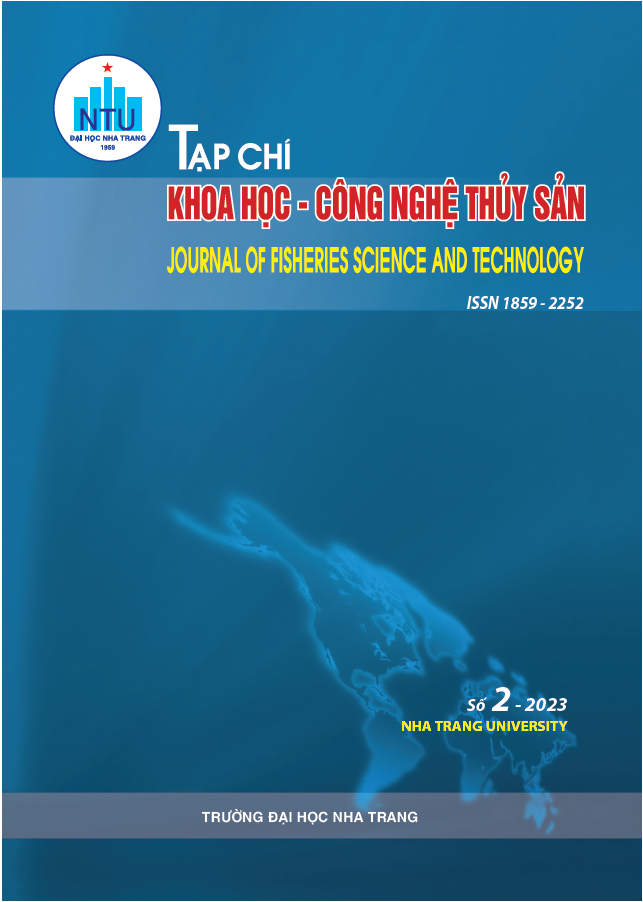##plugins.themes.huaf_theme.article.main##
Abstract
The multi-stage farming model is gaining popularity in intensive shrimp farming in our country. However, a major drawback of this technological process is the slow growth and low survival rate during the early stages. This study aimed to evaluate the effect of supplementing with Artemia during the early stages of a multi-stage shrimp culture process. Four regimens of Artemia supplementation were tested, including supplementation once a day, twice a day, three times a day, and a control treatment without supplementation. The shrimp were fed industrial feed six times a day, and each addition of Artemia corresponded to a density of 30 Artemia per shrimp per feeding. The experiment was conducted with five replicates over a period of 15 days, specifically the PL10-25 period. The results demonstrated that the addition of Artemia during the early stages significantly improved the growth, coefficient of variation, and survival rate of white leg shrimp. Specifically, the growth, coefficient of variation, and survival rate were similar and better in the two and three times a day supplementation groups compared to the once a day and control groups. Based on this study, it is evident that the addition of Artemia during the early stages of the multi-stage shrimp culture process is necessary. The recommended supplementation regimen is twice a day, with 30 Artemia per shrimp per feeding, as it optimizes both the economic and technical efficiency of the farming process.

